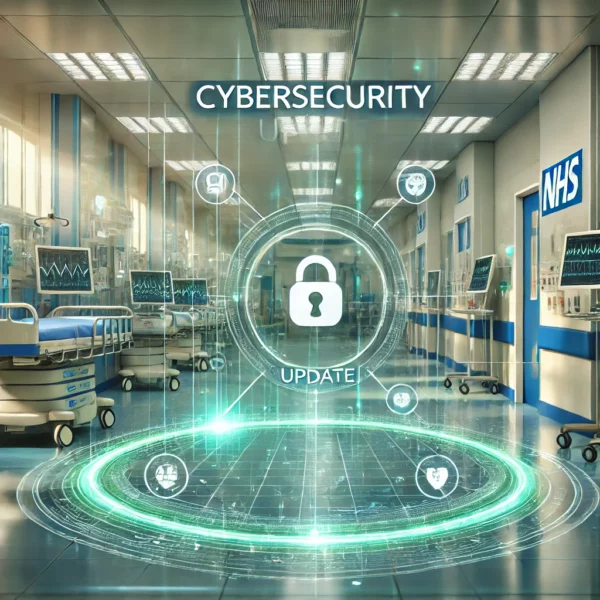Cybersecurity: Protecting Your Digital Frontier
In an increasingly digital world, where organizations and individuals rely on technology for practically every aspect of their lives, the importance of cybersecurity cannot be overstated. As cyber threats grow more complex and widespread, understanding cybersecurity’s significance and taking proactive measures to protect yourself is critical for safeguarding your data, privacy, and digital assets.
The Cybersecurity Landscape
Rising Cyber Threats: Cyberattacks, from phishing scams and malware infections to advanced persistent threats (APTs), are becoming more frequent. These malicious activities can disrupt business operations, steal sensitive data, and irreparably damage a company’s reputation. Attacks like ransomware can lead to significant financial loss, while data breaches expose both individuals and organizations to privacy risks.
Data Privacy Concerns : Data breaches have become an escalating concern in today’s digital age. With personal and financial information being stored across various platforms, a breach exposes this sensitive data, resulting in profound financial and reputational damage. In fact, organizations face severe legal and financial consequences when customer data is compromised.
Regulatory Compliance: Governments around the world are responding to the rise in data breaches and cyberattacks by enacting stricter data protection laws. Compliance with regulations like GDPR in Europe or CCPA in California is not just a legal requirement but a critical component of a robust cybersecurity strategy. Non-compliance can lead to heavy fines, loss of consumer trust, and significant operational disruptions.
Why Cybersecurity Matters
Protecting Sensitive Information: Cybersecurity measures are designed to protect sensitive data, such as personal identification details, financial records, and intellectual property. It’s crucial to ensure that this data remains in the hands of only authorized users, preventing unauthorized access and protecting against identity theft or corporate espionage.
Preserving Reputation: A company’s reputation is one of its most valuable assets. A single data breach can have devastating effects, causing customers to lose trust in the brand. By investing in cybersecurity, organizations can maintain the confidence of their customers, partners, and stakeholders, ensuring their reputation remains intact even in the face of potential threats.
Business Continuity: Cyberattacks can have disastrous consequences on business operations, leading to downtime, data loss, and operational chaos. With a solid cybersecurity framework in place, businesses can quickly recover from attacks, maintain continuity, and avoid costly disruptions. The resilience provided by cybersecurity solutions ensures that even in a crisis, operations can continue smoothly.
Financial Impact: Recovering from a cyberattack can be astronomically expensive. This includes direct costs like ransom payments, restoring data, and fortifying systems, as well as indirect costs such as legal fees, compliance fines, and lost revenue due to downtime. Investing in cybersecurity upfront is a cost-effective way to mitigate these risks, saving organizations from overwhelming financial damage.
Cybersecurity Best Practices
Firewalls and Intrusion Detection Systems (IDS): Implementing robust firewalls and intrusion detection systems is one of the first lines of defense against cyber threats. Firewalls monitor incoming and outgoing network traffic, blocking malicious activities, while IDS helps in detecting unusual behavior that might indicate an attempted breach.
Regular Software Updates: Keeping software up-to-date is critical. Cybercriminals often exploit known vulnerabilities in outdated systems. Regular updates and patches ensure that these vulnerabilities are fixed before hackers can exploit them, significantly reducing the risk of cyberattacks.
Employee Training: Human error is one of the leading causes of data breaches. Training employees on cybersecurity best practices, such as recognizing phishing emails and creating strong, unique passwords, helps minimize this risk. Educating the workforce on the importance of cybersecurity can turn them into a strong first line of defense.
Multi-Factor Authentication (MFA): Enabling MFA provides an extra layer of security. Even if a password is compromised, MFA requires an additional form of verification, such as a one-time code sent to a mobile device, making it significantly harder for attackers to gain unauthorized access.
Data Encryption: Encrypting data ensures that even if it is intercepted, it cannot be read without the decryption key. Sensitive information should be encrypted both in transit (when being sent across networks) and at rest (when stored on devices), to protect it from unauthorized access.
Incident Response Plan: Every organization should have a comprehensive incident response plan in place. This ensures that in the event of a cyberattack, the organization can quickly identify, contain, and mitigate the threat to minimize damage and downtime. A well-prepared incident response team is crucial for rapid recovery.
Regular Audits and Assessments: Periodic security audits and vulnerability assessments are essential to maintaining a strong cybersecurity posture. These evaluations help identify weaknesses in the system that may have been overlooked, allowing organizations to address them before cybercriminals exploit them.
The Role of Cybersecurity Professionals
Risk Assessments: Cybersecurity professionals perform risk assessments to identify potential vulnerabilities and threats within your organization’s infrastructure. Understanding these risks allows for the development of a tailored security strategy that addresses the specific needs of the business.
Security Solutions: Expert cybersecurity teams implement advanced security measures, such as next-gen firewalls, encryption protocols, and identity management systems, to protect against a wide array of threats. These solutions are customized to fit the unique environment of your organization, ensuring comprehensive protection.
Incident Response: In the event of a cyber incident, rapid action is critical to minimizing damage. Cybersecurity professionals provide swift incident response services, including threat containment, damage assessment, and system recovery, to reduce the impact of the attack.
Compliance Support: Keeping up with cybersecurity regulations can be overwhelming, especially for larger organizations with global operations. Cybersecurity professionals ensure that your business complies with all relevant regulations, avoiding hefty fines and potential legal actions.
FAQs
How does Technijian ensure business continuity?
Technijian ensures business continuity through proactive monitoring, regular maintenance, robust cybersecurity measures, and tailored disaster recovery plans. By focusing on preventing disruptions and providing rapid recovery, Technijian ensures your business keeps running smoothly.
What IT services does Technijian offer?
Technijian offers a wide range of IT services, including network management, cloud solutions, cybersecurity, data recovery, and 24/7 support. These services are designed to cover all your IT needs, ensuring smooth and secure operations.
How does Technijian handle cybersecurity threats?
Technijian employs multi-layered defense strategies, continuous monitoring, and rapid response to address cybersecurity threats. Our team uses advanced threat protection to safeguard your data and IT systems from evolving cyber threats.
Can Technijian support my business as it grows?
Yes, Technijian provides scalable and flexible IT solutions that adapt to your business’s growth. Whether expanding infrastructure or integrating new technologies, we ensure your IT systems support your evolving needs.
What makes Technijian cost-efficient?
Technijian focuses on long-term value by offering cost-efficient solutions tailored to your budget. Our proactive approach reduces the likelihood of costly disruptions, ensuring that your IT investments provide sustained benefits.
Is Technijian available 24/7?
Yes, Technijian provides round-the-clock support. Our 24/7 service ensures that any IT concerns are addressed promptly, minimizing downtime and operational disruptions.
Conclusion
The importance of cybersecurity in today’s digital world cannot be overstated. With rising cyber threats, regulatory requirements, and the need to protect sensitive data, having a strong cybersecurity strategy is essential for both individuals and businesses. By implementing best practices and working with cybersecurity professionals like Technijian, you can safeguard your digital frontier and ensure long-term resilience.










